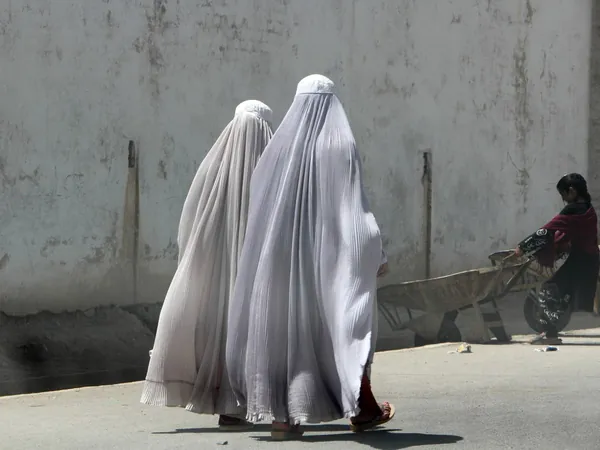
Daring New Measure: Taliban Bans Windows in Homes to Erase Visibility of Women in Afghanistan
2024-12-31
Author: Wai
In a shocking move to tighten control over women in Afghanistan, the Taliban has issued a decree banning windows in residential buildings. This extreme measure aims to prevent women from being visible while at home, revealing the ongoing suppression of women's rights under the Taliban regime.
Hibatullah Akhundzada, the Taliban's leader, mandated that all buildings, whether newly constructed or existing, must not have windows facing areas where women typically gather, such as courtyards and kitchens. The decree, clarified on social media, dictates that windows allowing visibility into spaces traditionally occupied by women could lead to "obscene acts."
Heather Barr, interim deputy director of women’s rights at Human Rights Watch, expressed grave concerns regarding the implications of this decree. “People have talked about the Taliban metaphorically erasing women, but increasingly, it is not metaphorical at all. They are stopping women from seeing the world, fully annihilating their personhood,” she remarked.
Since the Taliban regained power in 2021, they have instituted numerous restrictions on women, effectively barring them from workplaces, education, sports, and other public domains. This latest measure is part of a broader campaign that includes prohibiting women from salons, gyms, and even from speaking in public. Women have faced a continuous erosion of their rights, with education bans for girls extended through secondary school into higher education.
The recent window ban is further compounded by the Taliban’s decision to close all NGOs employing women, asserting that compliance with their strict interpretation of Sharia law must be upheld. A chilling letter from the Ministry of Economy warned NGOs that failing to enforce these regulations would result in losing their operating licenses in Afghanistan.
The United Nations has sounded the alarm, stating that the position of women in Afghan society has diminished dangerously in just two years. “This really impacts how we can provide lifesaving humanitarian assistance to all the people in Afghanistan,” said UN spokesperson Florencia Soto Nino-Martinez. The dire situation extends beyond women, as many Afghans face widespread poverty and a humanitarian crisis exacerbated by restrictions on aid.
The Taliban has consistently focused on erasing women's presence in society, from banning their participation in public life to physically blocking them from being seen or heard. The international community is increasingly concerned about the potential ramifications of these policies, fearing that the plight of women in Afghanistan is a harbinger of a broader humanitarian disaster looming over the nation.
As Afghanistan descends into deeper isolation under Taliban rule, observers wonder where this authoritarian path will lead, and how long the world can remain silent in the face of such blatant human rights violations. Will the cries for justice and rights be heard before it’s too late?




 Brasil (PT)
Brasil (PT)
 Canada (EN)
Canada (EN)
 Chile (ES)
Chile (ES)
 Česko (CS)
Česko (CS)
 대한민국 (KO)
대한민국 (KO)
 España (ES)
España (ES)
 France (FR)
France (FR)
 Hong Kong (EN)
Hong Kong (EN)
 Italia (IT)
Italia (IT)
 日本 (JA)
日本 (JA)
 Magyarország (HU)
Magyarország (HU)
 Norge (NO)
Norge (NO)
 Polska (PL)
Polska (PL)
 Schweiz (DE)
Schweiz (DE)
 Singapore (EN)
Singapore (EN)
 Sverige (SV)
Sverige (SV)
 Suomi (FI)
Suomi (FI)
 Türkiye (TR)
Türkiye (TR)
 الإمارات العربية المتحدة (AR)
الإمارات العربية المتحدة (AR)